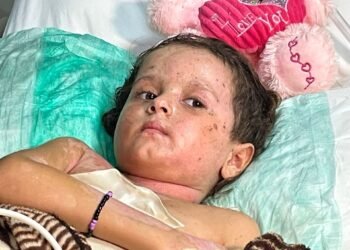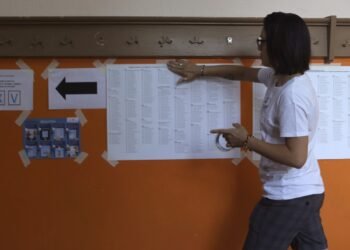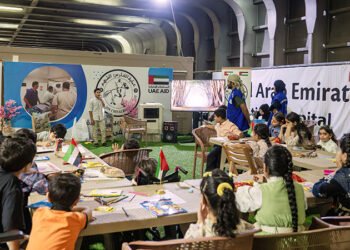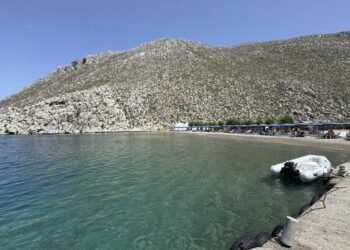Italian Foreign Minister Antonio Tajani says most of the $38m in funding will be allocated for food in Gaza.
Italy has announced it will restore funding for the United Nations agency for Palestinian refugees (UNRWA) months after it suspended aid to the agency over Israeli allegations linking UN staff to the deadly October 7 attack.
Rome joins several Western donors in resuming aid after an independent review of UNRWA, led by French former foreign minister Catherine Colonna, found that Israel had not provided any evidence to back its claims.
Israel launched a brutal military offensive in the wake of the October 7 attack, killing more than 35,000 Palestinians. Up to 1,100 people were killed and about 250 people were taken captive in the attack inside Israel claimed by the Hamas group.
The Palestinian enclave remains in ruins after nearly eight months of Israel’s war.
Most of the key donors, including the United States and the European Union, have resumed funding due to the unprecedented humanitarian situation in Gaza worsened by Israel’s restrictions on aid delivery.
“Italy has decided to resume financing specific projects intended for assistance to Palestinian refugees, but only after rigorous controls that guarantee that not even a penny risks ending up supporting terrorism,” Antonio Tajani told Palestinian Prime Minister Mohammad Mustafa during a meeting on Saturday.
Tajani said he had informed the visiting premier “that the government has arranged new funding for the Palestinian population, for a total of 35 million euros ($38m)”.
“Of this, five million will be allocated to UNRWA,” he said in a statement, with the remaining 30 million euros allocated to Italy’s “Food for Gaza” initiative in coordination with other UN aid agencies.
That led many nations, including top donor the US, to abruptly suspend funding to the agency, threatening its efforts to deliver aid in Gaza, leaving millions at risk of hunger and possible death.
Created in 1949, the UNRWA employs about 30,000 people in the Palestinian territories, Jordan, Lebanon and Syria.
UNRWA chief Philippe Lazzarini had described the steps to suspend funding an “additional collective punishment” for Palestinians already reeling from non-stop Israeli bombardment.
‘Full-blown famine’
UN Special Rapporteur on Gaza, Francesca Albanese, also called the decision to cut funding “immoral” amid widespread hunger and a health crisis in the besieged Palestinian territory.
As news of the funding reinstatement was announced, Gaza faced constant bombardment overnight, preventing the delivery of UN services to many parts of the territory.
Meanwhile, media’s Hani Mahmoud, who is reporting from central Gaza’s Deir el-Balah area, reported attacks were continuing on Saturday in the vicinity of the Kuwaiti Hospital, including the Shaboura refugee camp.
Artillery shelling hit [the camp’s] surroundings, preventing ambulances from reaching the hospital.
“Gradually, step by step, another health facility is being pushed out of service as the Israeli military approaches the main roads leading to the Kuwaiti Hospital,” our correspondent said.
No hospitals are currently accessible in northern Gaza, the World Health Organization reports, and as of Friday, only the al-Awda Hospital was “considered partially functional” in the north, though it, too, was inaccessible amid Israeli military operations.
The International Rescue Committee and the organisation Medical Aid for Palestinians, reported that in central Gaza displaced people are surviving on just 3 percent of the internationally recognised minimum requirements of water.
At one shelter for displaced Palestinians, 10,000 people received just 4,000 litres (1,057 gallons) of water per day, “translating to about 0.4 litres per person, for drinking, washing, cooking and cleaning”, the UN Office for the Coordination of Humanitarian Affairs (UN OCHA) reports.















